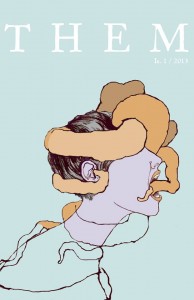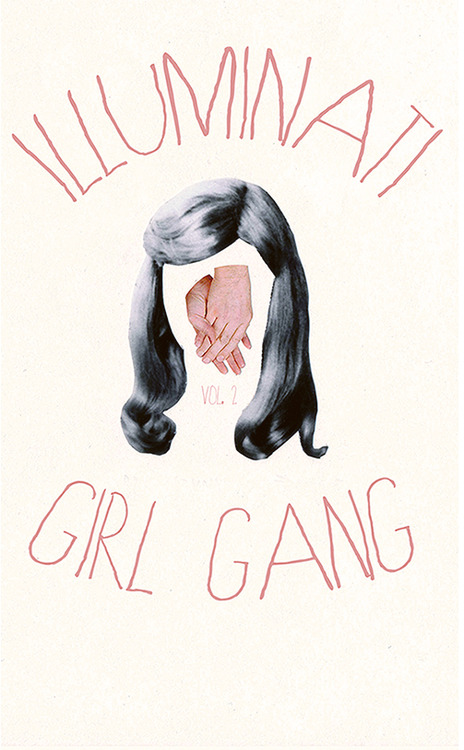Sator Press presents… NO OTHER by Mark Gluth
In a sequence of haunted seasons, Tuesday, Hague, and their mother Karen are pained by the aporia of love and death. With powerfully elemental prose, No Other lays bare the mysterious and emotional fate of a small family.
No Other is shipping now from Sator Press.
•
“In Mark Gluth’s beautiful family gothic No Other, the reader encounters a landscape of mood and mystery, burning with a stripped-down pain. Gluth’s sentences devastate in their raw economy, attempting to penetrate the everyday, tracing abbreviated existences struggling to survive through bare seasons.”
– Kate Zambreno, author of Green Girl & Heroines
“In clipped, incantatory verse shined from whorls somewhere between Gummo and As I Lay Dying, Mark Gluth’s No Other invents new ambient psychological terraforma of rare form, a world by turns humid and eerie, nowhere and now, like a blacklight in a locked room.”
– Blake Butler, author of 300,000,000
“It’s devastating.”
– William Basinski, composer of The Disintegration Loops
•
Four pieces from the online scrapbook documenting Mark Gluth’s influences and inspirations while writing the book:

From Evidence of Things Unseen by Simen Johan.
And finally, a note about publishing No Other.
•
One last thing: This website was very important to me as a person, reader, writer, and publisher. I met many great people through writing for HTMLGiant; I bought and read many great books through reading HTMLGiant; I spoke in a lot of fervent conversations—both online and in person—through caring about HTMLGiant and its myriad ideas and moods. Safe money says that this site continues to be recognized as a weird and fecund little corner of the internet, and a place that was very important to a growing body of literature and its devotees. Thank you, HTMLGiant, and R.I.P.
October 20th, 2014 / 9:00 am
Get Ready for THEM: Stephen Michael McDowell Reports on Jos Charles’s New Magazine
When a new literary arts magazine comes along, it’s always a reason to celebrate. Jos Charles, Emerson Whitney, and Jamila Cornick have put together a critically ambivalent, aesthetically smart online magazine THEM (soon to be in print) that promotes the *trans values in us all, and it is awesome.
Stephen Michael McDowell, a writer loosely associated with the Alt Lit scene (as is Jos Charles), gives a 25-point report on Jos Charles’s new project THEM, Issue One, which was published online today (link provided below):
1. I have a very low tolerance for cold, and often cite any setting below 75 degrees Fahrenheit as potential “jacket weather”.
2. Despite widespread public knowledge of racially polar male and female authors and poets [something about me not being able to think of any openly queer or racially unspecific authors and poets, especially given] my experience.
3. Something about how modern dress does not preclude a person from being a person but can prevent a person from being informed of different genitals which can prevent a person being aware that different genitals exist.
4. Focusing on queer or trans* identity as a central theme in literature vs. focusing on economics as a central theme in literature vs. focusing on writing about writing as a central theme in literature vs. focusing on nothing in general as a central theme in literature.
5. In THEM Issue One the assigned gender of each contributor in this journal is shrouded in a way that, regardless of the piece’s overall focus, seems to render every character, voice, feeling, and basis for confusion “human” in a way that I like.
6. I developed pneumonia the week my junior high school P.E. class started practicing lacrosse. I was relieved I wouldn’t have to compete against people in lacrosse, but practiced at home in my bedroom because I liked the mechanics of the instruments that were used in the game. I felt profound disappointment when I got back two weeks later and they had moved on to volleyball.
7. In a climate where terms like “Experimental” and “Standard Procedure” seem wildly vague and frequently interchangeable it seems like enthusiasm and maybe “Recognizably Subversive” work are what readers’ readers are looking for to share with there friends. In this search, almost as if by accident, the still peripheral outpourings of the disenfranchised but not unfamiliar seem to easily go overlooked. I don’t know why this is, maybe something about quality, maybe something about affect and guilt, but this collection touches on a lot of subjects without intentionally straying from the easy-to-parse, which I think may give this publication a chance in the realm of alternative/internet literature at least.
8. I feel rigidly aware I’m writing in a mode I’m uncomfortable with because it seems like people are more receptive when I write this way.
9. This is a large collection (~100 pages of text). If I were approached and asked by a friend which pieces of this they should read, I would reluctantly point out one co-authored by a writer I’ve published, maybe three or four more besides, but the experience of reading this collection dans complètement left me on the brink of tears in a sort of dizzying empathy. So maybe just read all of it.
10.
““Trans*” is an umbrella term meant to include not just transgender identities, but any person who does not exclusively identify as the gender assigned at their birth. This often includes genderqueer, bigender, agender, genderfuck, and other gender-variant identities. Like with any umbrella term, the only way to know if “trans*” applies to someone is if they apply it to themselves.
THEM uses the word “trans*” in an attempt to make room in the old, reconcile, carve, and begin from where we can. That is to say “trans*” is not perfect and without limits; THEM adopts it as a strategy—contingently and consciously. If a more suitable term, less grounded in binarist western identity-politics emerges, THEM will be happy to abandon “trans*” and utilize another.
THEM is not the gender police. Authors and artists herein may not identify with “trans*” as a term, i.e. folks with cultural gender identities who reject its use. Likewise not all writing herein may be considered “trans* writing.” THEM is willingly confused by what does or doesn’t pass as trans* writing. THEM is critically ambivalent. THEM is happy to present conflicting manifestos.”
Seems sweet.
11. In my immediate family there is a constant struggle to reconcile racial and gender identity. One of my siblings has been in a long-term relationship with someone outside our family’s designated race and has seemed openly conscious of and tormented by this, despite the degree to which they seem compatible. Another sibling is in a “homosexual relationship” and hasn’t told our extended family, though they never attend family events without their partner. After nearly a decade of engaging exclusively in relationships with people of one racial designation, I recently started seeing people in other races and with non-conforming gender identities and have felt less confused by my impulses and more aware of what other people consider when looking for partners, and have felt the experience to be constantly epiphanic. Reading this journal has enhanced that feeling of epiphany for me, I feel.
12. Something I thought upon initially embarking on reading “THEM” was that the formatting and layout seemed lit-journal-typical in a way that made me uncomfortable. The discomfort, I realized, was grounded in my own tendency to try to design things contrary to how culturally normative magazines and journals have appeared in my experience. After thinking more about this, I realized the editors may have been trying to make the journal seem attractive to a wider audience than people who, in my mind, stereotypically fit into a “punk” aesthetic, due to that subculture appearing more welcoming to openly trans* people. I’m not sure what it is that I intuitively generalized but I don’t like it and think #10 renders it in a much higher resolution than my brain is willing to parse.
13. I’ve never had gay sex, whatever that means. Maybe I have. Whoa.
14. I didn’t know there was a trans flag. Now I do. http://castrobiscuit.com/wp-content/uploads/2012/10/trans-pride-flag.gif
15. Having a very difficult time coming up with 25 points. Earnestly considering flaking on all y’all tbqh.
16. Thought “LGTBQH” and kind of twisted my spine in an attempt to express a seemingly nondescript, possibly never before previously experienced emotion I could attempt to convey as “weakly entertained in a self-loathing humorous manner while very aware of growing feeling of hunger and mild pain in the testicles.”

Writer Reba Overkill does not live up to their name in THEM, Issue One, instead they straight up kill it.
17. I feel aversion, generally to political activism. To some degree, I embarked on a career in literature because novels and poems have the ability to transcend—or, more accurately, in my view, diverge from—approaching politically controversial topics and unite people. It seems sweet to me that there are authors and poets spending their time writing from politically aware standpoints, but with less an “agenda” than to express and explore, in a way that’s non-standard with regard to what, in my view, is typically viewed as “literature”
18. “Satyricon (or Satyrica) is a Latin work of fiction in a mixture of prose and poetry (prosimetrum). It is believed to have been written by Gaius Petronius, though the manuscript tradition identifies the author as a certain Titus Petronius. As with the Metamorphoses of Apuleius, classical scholars often describe it as a “Roman novel”, without necessarily implying continuity with the modern literary form.
“The surviving portions of the text detail the misadventures of the narrator, Encolpius, and his lover, a handsome sixteen-year-old boy named Giton. Throughout the novel, Encolpius has a hard time keeping his lover faithful to him as he is constantly being enticed away by others. Encolpius’s friend Ascyltus (who seems to have previously been in a relationship with Encolpius) is another major character.
“It is one of the two most extensive witnesses to the Roman novel, the only other being fully extant Metamorphoses of Apuleius, which is quite different in style and plot. Satyricon is also extremely important evidence for the reconstruction of what everyday life must have been like for the lower classes during the early Roman Empire.”
—Wikipedia
I found this article about three years ago when google searching “first novel”. [Something about it having been published in the first century A.D.] [Something about 2,000 years passing since its first publication] [Something about high-profile LGBTQ public figures gaining mainstream popularity on television and the internet]

Codi Suzanne Oliver, whose writing is also included in the first issue of THEM, is another reason why THEM’s editorial staff should include contributors’ phone numbers.
19. I have a friend who dated a trans woman and stayed friends with her after they broke up. My friend told me that her friend began a long-term relationship with a man and still hasn’t told him she was once designated a boy because it just never came up in conversation.
20. This couple: http://www.dailymail.co.uk/news/article-2374296/Transgender-teen-lovebirds-pose-swimsuit-shoot-having-gender-reassignment-surgery.html
21. Have, over the course of writing this, returned to the idea of “us vs. them” but haven’t yet come to any conclusions about it.
22. I’ve felt consistently averse to the idea of trying to “sell” this journal. I was asked to write this and am writing it because I was asked to and felt interested in writing something that would appear on HTMLGiant and would promote a more diverse range of potential for writing, in general.
23. I feel shitty for making this “meta” instead of feeling as though I was capable of coherently summarizing my thoughts, strictly, on the journal itself.
24. I think viewing this collection not as “queer/trans* literature” but as “literature” will be the most beneficial way of perceiving it, if the reader is capable of dissociating from the intention of the publication.
25. Thank you for reading this.
You may read THEM, Issue One, free and online here: http://issuu.com/themlit/docs/them_draft_1.docx
December 13th, 2013 / 8:00 pm
LOOSE RULES FOR OUR ATTENTION

Photo by Kate Ter Haar.
As I get older, sicker, and more beset with claims on my attention, I find myself dreaming up simple rules for gracefully consuming my way through the world. As a person reliant on deeply industrialized and entangled societies for money, food, medicine and entertainment, I find that simple tricks help me feel sane. Heuristics are useful when navigating complex systems, be it 21st century America or your personal ethics.
The following rules of thumb might help if you feel overwhelmed with the incomprehensible amount of interesting culture to eat and be eaten by. Because books are the media that I chase and covet the most, I’ll use them here. Altering the immortal words of Gale: “So many books, so little time.”
1. When in doubt, don’t read it.
Err on the side of omission. You might die tomorrow—hell, you might die tonight—and wouldn’t you regret it if you slogged through fifty more pages of some book that just feels serviceable?
2. If the author’s a bigot, don’t read it.
This applies to Mein Kampf all the way down to that writer that said “I just can’t fuck any more NYU students with Jim Morrison posters on their wall.” With so much potentially transcendent literature written by not-immediately-obvious-assholes just waiting in libraries and in book stores, feel free to judge with severe intolerance.
3. If it’s new, don’t read it.
Like evolution, time is a critic without aim, but there’s a lot of literature that has been retold, copied, salvaged and painfully rebuilt because it’s wildly powerful or innovative to most people that engage it. The newer the book you’re reading, the more likely it’ll be buried by the sands of time.* Lately, I’ve been reading mostly ancient literature and looming works from a few centuries ago, and I’m having trouble returning to contemporary stuff. But this difficulty feels nice.
Illuminati Girl Gang Vol. 2
The second issue of the all-female literary zine Illuminati Girl Gang, edited by Gabby Gabby, is online, featuring work by Luna Miguel, Roxane Gay, xTx, Mira Gonzalez, Cassandra Troyan, Maggie Lee, Ashley Opheim, Natalie Chin, Carolyn DeCarlo, Bunny Rogers, Alice May Connolly, and more.
I Am Prepared to Read Many More Novels About People Fucking
I haven’t read Sheila Heti or Ben Lerner’s recent novels, the impetuses for Blake Butler’s recent, anti-realism-themed Vice article, but I’d like to respond to Blake’s finely-written itemized essay, because I, personally, continue to desire novels written by humans, which relate, slipperily or not, to human reality—subjective, strange and ephemeral as it is–novels which deal with such humdrums as sex, boredom, relationships, Gchat, longing, and, beneath all, death. I want a morbid realism.
I agree with Blake that a reality show like The Hills and social media such as Facebook create stories by virtue of humans doing simply anything. The documenting, sharing, and promoting of mundane everyday human life is more prevalent and relentless than ever before. In this environment, literature (and movies) about humans (most controversially, about privileged, white, hetero humans) that presents everyday drank-beers-at-my-friend’s-apartment life, wallows in self-pitying romantic angst, and doggy paddles po-faced through mighty rivers of deeply profound ennui can potentially seem annoying, or boring, or shittastical.
The Well Read Man

Books are popular fodder for lists, and why not? There are so many books being published. Book-related lists can be useful in cutting through some of the noise in a time when more than 200,000 new books are released each year, in the United States alone.
Yesterday, Esquire released a list of 75 books every man should read. They make such lists regularly so the list, in and of itself, is not remarkable. There are some really great books included like Lolita and Call of the Wild and The Things They Carried and Winter’s Bone and The Spy Who Came In From the Cold. The list offers a nice blend of contemporary and classic fiction. I was particularly pleased to see Edward P. Jones’s outstanding The Known World mentioned. I cannot say there’s a book on that list that doesn’t deserve the recognition. The list is certainly very masculine in tone, but there’s nothing wrong with that. Great books are great books and there’s something to be said for muscular prose. My list would probably look somewhat different but so would yours. Reading is personal and taste is subjective.
It is curious, though, that out of all 75 books every man should read, only one, not two or five or seventeen, but one of those books, A Good Man Is Hard to Find by Flannery O’Connor, is written by a woman. I should be surprised by this imbalance but I’m not. Is anyone?
Against Dualism: Yes That Is A Joke: A Response.

LITERATURE
a man named court merrigan emailed me a few days ago and asked me to comment on his blog, in a post about twitter, because he knew i had started a twitter website where made up accounts are maintained. i am interested in what other people think. i am not trying to get an argument going or whatever, i just think it would interest me to hear from other people. the tone of the comments seems to change by the last one and i don’t know why people get so defensive. but whatever, i am interested in hearing from other people. here is the article and the comment thread that followed is after the break.
July 16th, 2009 / 6:39 pm







